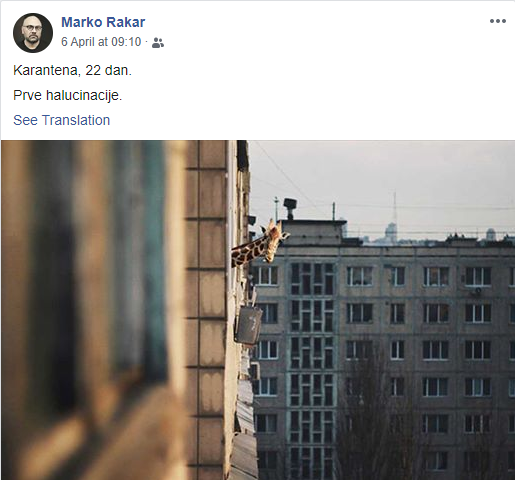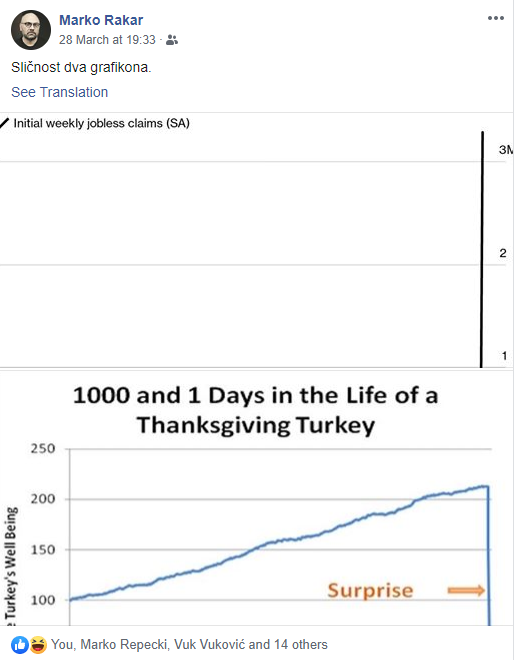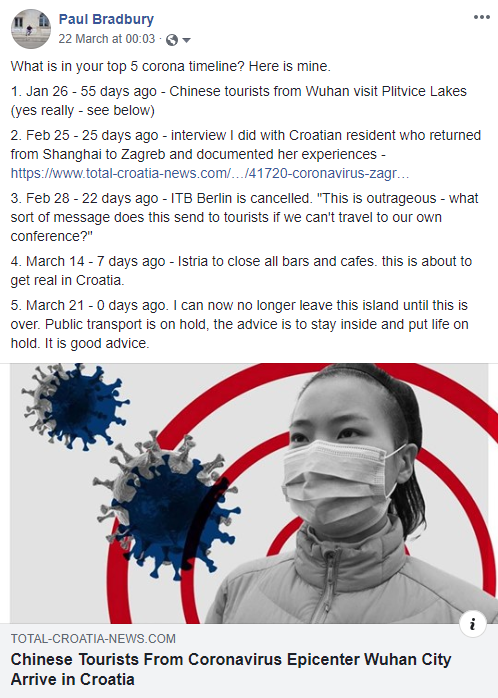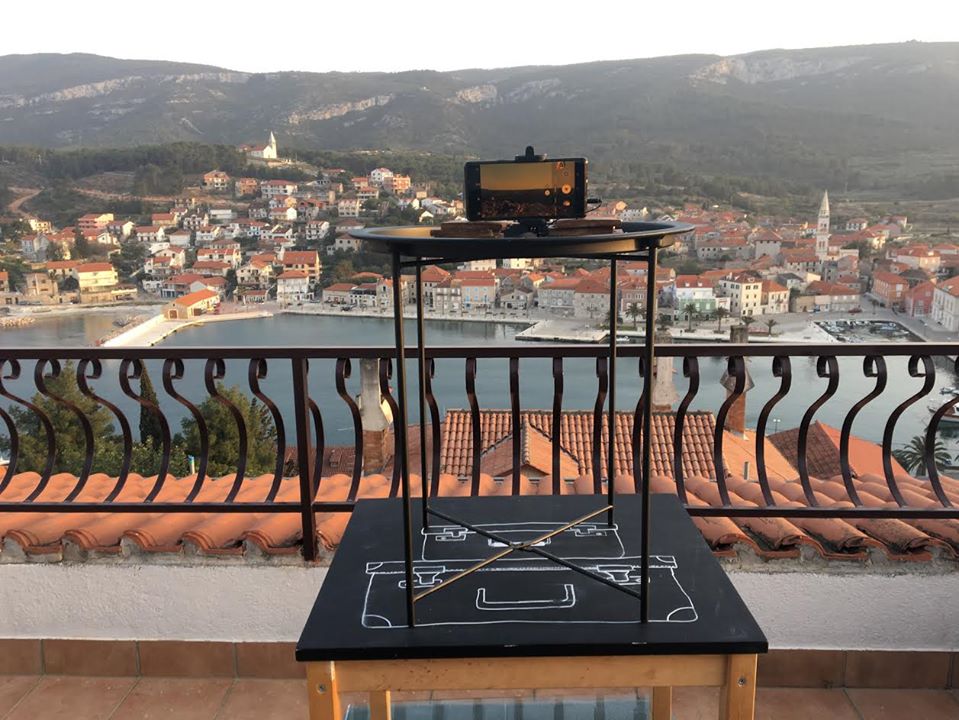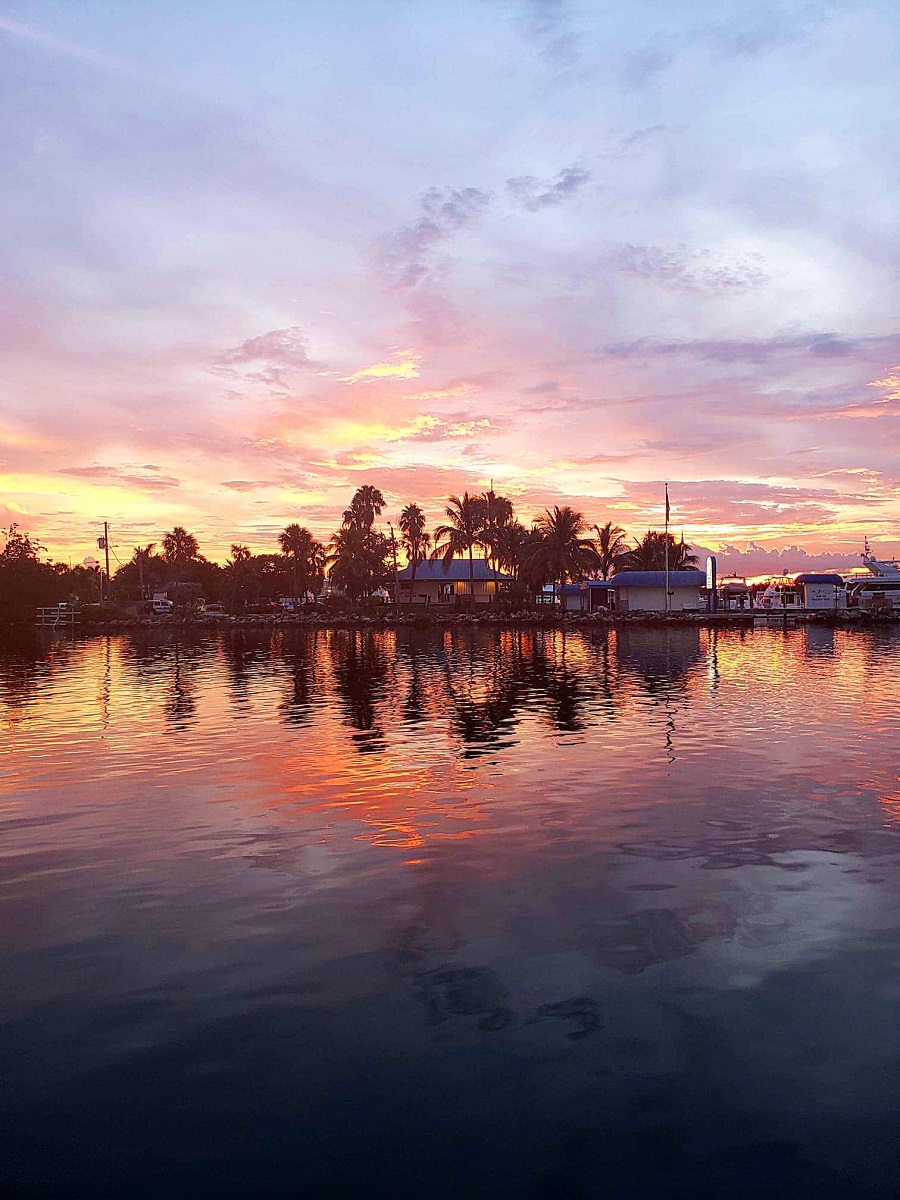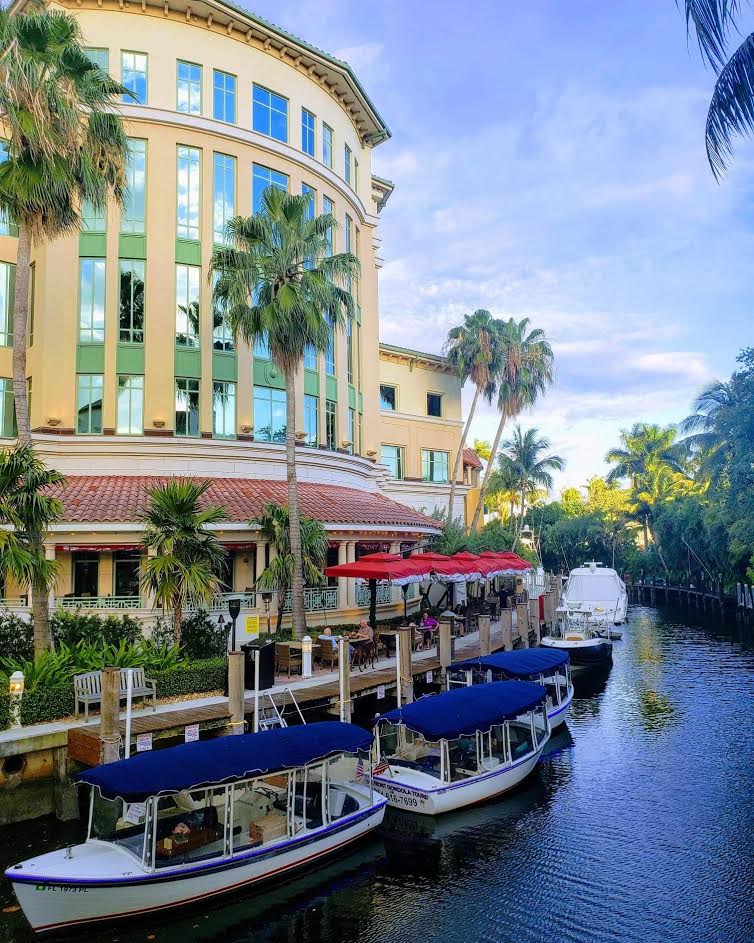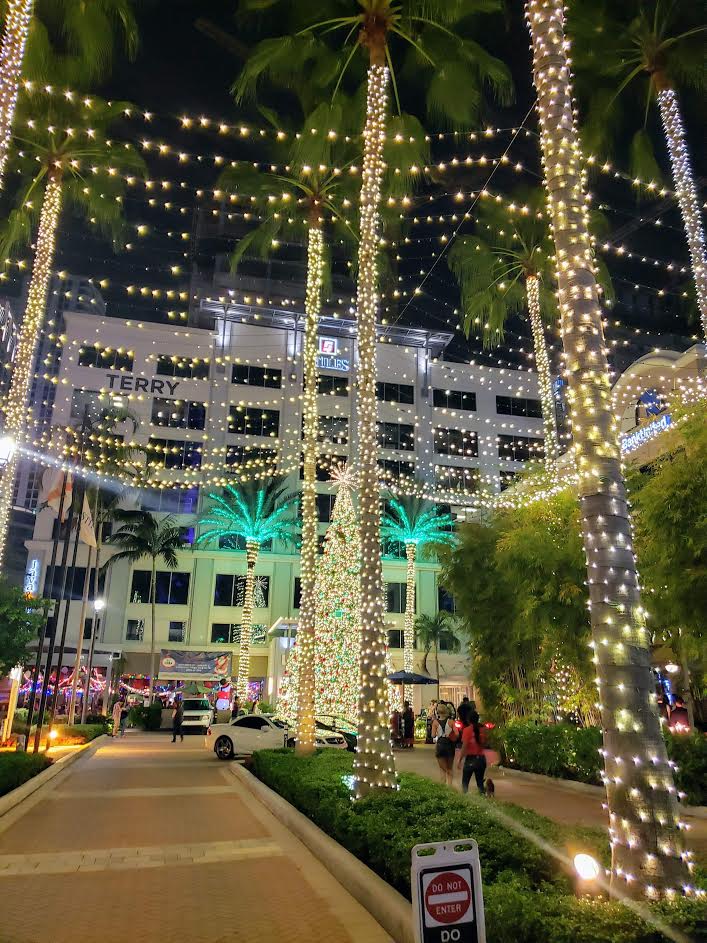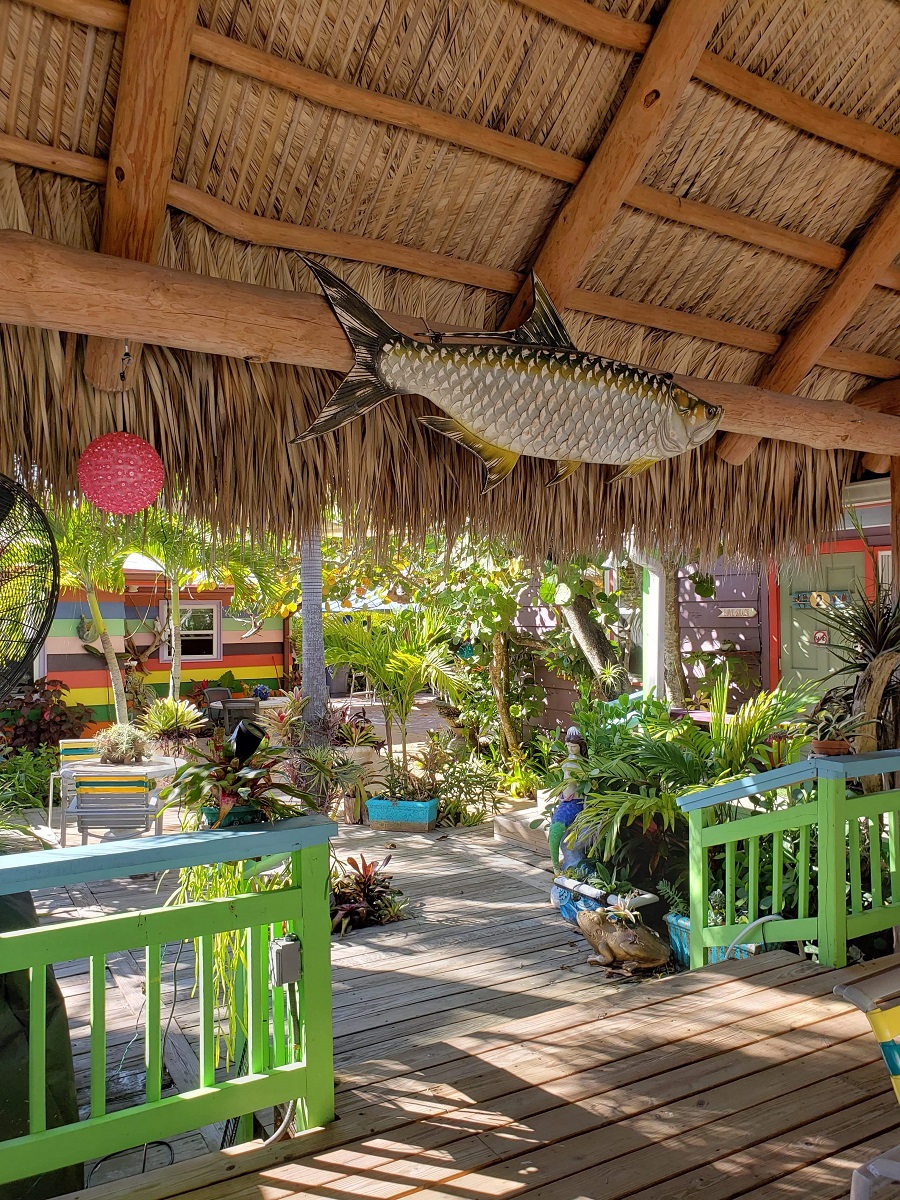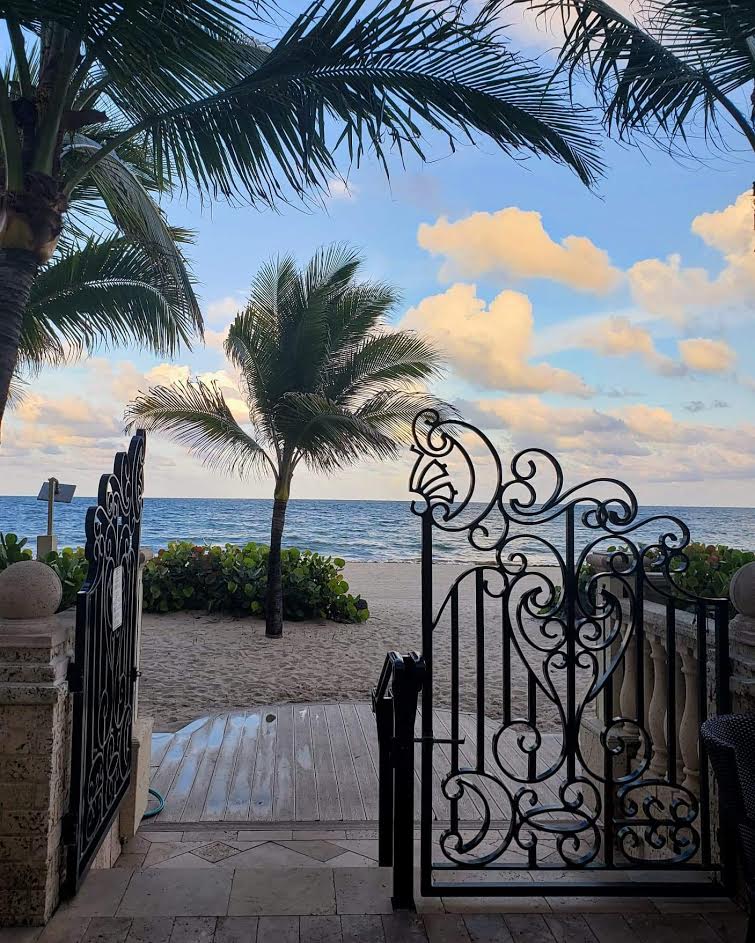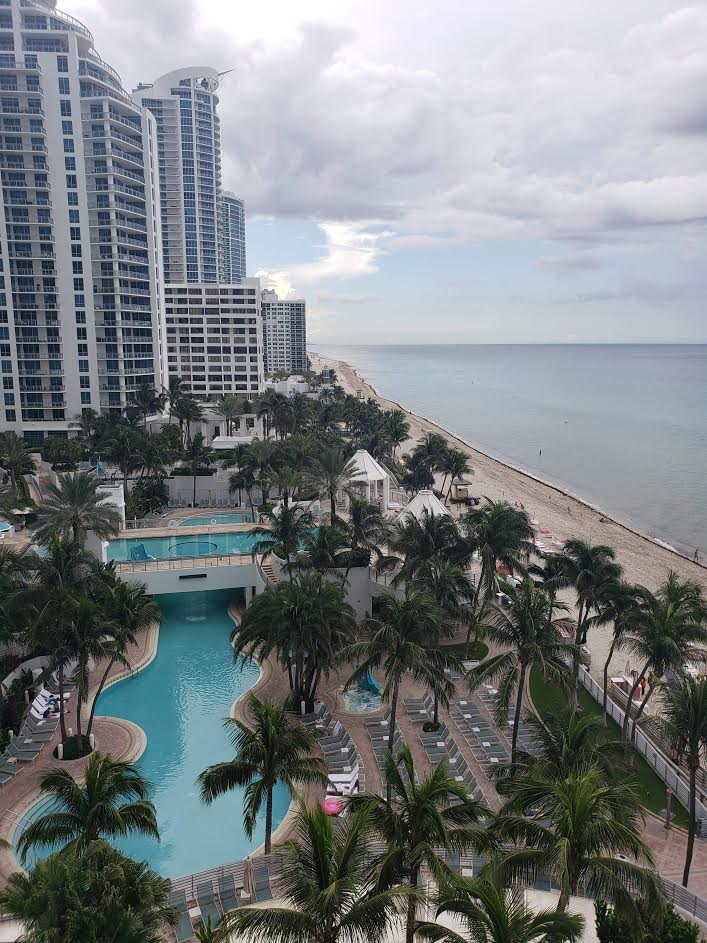Vouchers for Unused Trips Approved, Croatian Travel Agencies Pleased
April 8, 2020 - The Croatian Travel Agencies Association is grateful that their proposal to offer travel vouchers has been approved.
HRTurizam reports that on Tuesday in Parliament, along with a package of other measures aimed at mitigating the effects of the COVID-19 pandemic, changes were also made to the Law on Emergency Tourism Services, which allowed travel agencies to issue vouchers instead of refunding passengers for package arrangements.
"We are grateful to the Ministry of Tourism, the Croatian Government, and the Parliament for accepting our proposals to allow issuing vouchers for unfulfilled travel agreements that should have occurred in these extraordinary circumstances, i.e., after March 1, 2020. The passenger is fully protected as they receive a voucher they can use for another trip or a deferred travel period once the situation calms," said UHPA President Tomislav Fain.
Fain also added that the voucher would be covered by the already arranged bail to protect travel agencies from going bankrupt.
"The traveler is also entitled to a refund if he or she does not wish to use the previously paid and booked travel, upon expiry of 180 days from the termination date of the special circumstances, and for a full refund within 14 days."
"As members of the European Association of National Travel Agencies and Travel Organizers (ECTAA), we have engaged in negotiations with the European Commission, which has instructed consumers to accept travel delays and vouchers. In communication with ECTAA colleagues from many countries such as France, Belgium, Finland, the Netherlands, the United Kingdom, Italy, Poland who, in cooperation with their Governments, have also introduced a voucher in some form, we have come to a satisfactory solution and we are very pleased. We are glad that both our Ministry of Tourism and the Government has accepted the proposal and have a strong understanding of the sector, which is in an unprecedentedly difficult situation," said the President of the Association of Travel Agencies, HGK Boris Žgomba, also a member of the Board of Directors of ECTAA.
The agencies, apart from the new bookings and inflow of any funds stalled since February, could not even reach the funds for the already booked trips as the money had already been passed on to others in the package like airlines and hotels.
Most of the same refunds were provided to agencies in the form of deposits, vouchers, time delays and often nothing. In previously applicable provisions of the Act that transposed the EU Directive, travel agencies were in a difficult situation and forced to bear the brunt of the crisis on their own, even before the further escalation in the rest of the economy.
Already in the HGK and UHPA polls in February, 92 percent felt strong and medium adverse effects on long-term business, as school trips, congresses, and business trips stopped, along with restrictions on international travel and guest arrivals from Asia and other focal countries. This impact has only increased over the past month, with the closure of all borders and activities.
Of the 2061 registered travel agency companies and tour operators, 99.3% of them are small or micro-companies, and these losses represent an enormous blow to business, and as often are family businesses, this is directly the income of their entire families.
The Association of Croatian Travel Agencies (UHPA) and the Association of Travel Agencies (UPA HGK) represent the leading professional associations in tourism that represent the interests of over 2000 registered companies for the activity of travel agencies and tour operators and employ nearly 6,500 people.
To read more about travel in Croatia, follow TCN's dedicated page.
University of Washington's IHME Predicts Coronavirus Peak, Death Toll in Croatia
April 8, 2020 - According to projections from the Institute for Health Metrics and Evaluation (IHME) at the University of Washington, Croatia is set to reach its peak on April 20.
Index.hr reports that during the worst week of April 18-25, an average of seven citizens could die every day, according to these projections. By August 4, there will be 166 victims of the pandemic.
The death toll depends on the capacity of the health systems
The University of Washington experts say the death toll depends on the capacity of health systems. In that sense, Croatia is doing well. According to the projected pandemic, Croatian patients should occupy 255 hospital beds at the height of the infection, out of the six and a half thousand in our health care system. A similar situation is with beds in intensive care units with a capacity of 216. And according to IHME's prediction, at the height of the crisis in Croatia, 61 patients will be in intensive care.
According to the most pessimistic estimates, more than 20 patients will die in the country during the peak period
These estimates represent the mean, but in the worst-case scenario predicted by IHME in Croatia, more than 20 patients would die daily during the peak of the pandemic. Even in such a black scenario, Croatia would have enough beds and ventilators, thus positioning Croatia better than many more developed and wealthier countries.
Estimates for some developed countries are not optimistic.
Otherwise, one of the worst estimates is for the UK, where more than 100,000 beds will be needed at worst times, with fewer than 18,000 available. Therefore, more than 66,000 people are expected to die there in August. The United States will miss 36,654 beds and the peak of the crisis will come on April 15, when more than 3,000 will die.
There should be just over 150,000 deaths across Europe, with 81,766 lives lost in the United States.
You can see the COVID-19 projections in Croatia HERE
To read more about lifestyle in Croatia, follow TCN's dedicated page.
Falkensteiner Hotels & Residences Donate 200 Vouchers to Medical Workers in Zagreb
April 8, 2020 - Falkensteiner Hotels & Residences has donated 200 vouchers for their resorts in the Zadar area.
Two hundred vouchers, 100 for Falkensteiner Resort Borik in Zadar and 100 for Falkensteiner Resort Punta Skala near Petrčane, have been donated by the Falkensteiner Hotels & Residences hotel group to two Zagreb hospitals.
Namely, the health workers of the Sveti Duh (Holy Spirit) Clinical Hospital and the Infectious Diseases Clinic ”Dr. Fran Mihaljević ”will be able to use their vouchers for two nights for them and their families as soon as possible.
"Doctors and nurses, as well as other staff in the healthcare system, are doing their best during the coronavirus pandemic. We think that when all this is over, these holidays will be perfect. This is our small contribution at a time when we all need solidarity,” Falkensteiner said.
"On behalf of our staff and the staff of the Infectious Diseases Clinic “Dr. Fran Mihaljević”, I can only heartily thank you for this exceptional donation and say that our staff will be happy to use them as soon as our joint fight against the current pandemic is over," said the director of the Sveti Duh Clinical Hospital Dr. Mladen Busic.
Falkensteiner Resort Borik is an all-inclusive family hotel located on the 1.7 km long beach of Zadar. Boasting the 2500 sqm Acquapura Thalasso & SPA Centre, pool and water slide, children’s world, adventure playground, kid’s disco and a fantastic entertainment and sports program, it was chosen by Holidaycheck as the most beautiful family club in Croatia.
Falkensteiner’s Punta Skala resort is located just 10 km outside of Zadar in Petrčane, offering two superb hotels, fine restaurants, shops, exclusive apartments, and modern sports facilities all along the coast. The 6,000 sqm spa facility is the largest in Croatia, while there are also 7 tennis courts, 3 multi-sports courts, 2 padel-courts, 2 beach volleyball courts, and minigolf & golf training range.
This news was announced at the same time as Arena Hospitality Group, which, with partner Kamgrad, has purchased disinfection devices for the Pula General Hospital.
Both hotel groups emphasized the importance and value of the work of clinics and hospitals and the efforts of their staff in treating patients during the COVID-19 pandemic, helping both the community and, as they point out, part of the group's business through social responsibility and solidarity.
To read more about lifestyle in Croatia, follow TCN's dedicated page.
Arena Hospitality Group and Kamgrad Buy Disinfection Devices for Pula Hospital
April 8, 2020 - Arena Hospitality Group and Kamgrad have teamed up to buy room sanitation devices for the Pula General Hospital.
Following the recent donation of LCD TVs and meals, i.e., lunch packages for hospital staff at Pula General Hospital, the Arena Hospitality Group is giving additional assistance to the Pula General Hospital, and thus to the local community and population.
Namely, HRTurizam reports that in cooperation with the hospital and their expressed need, together with its long-time partner Kamgrad d.o.o., one of the leading domestic companies in the construction sector, has decided to finance the purchase of medical equipment, i.e., UVDI-360 room sanitation devices to combat COVID-19 infection as efficiently as possible. The total amount of HRK 362,500 will be financed in the ratio of 50%/50% between Kamgrad and Arena.
The UVDI-360 room sanitation device is the best-selling device of its type in the world, Europe and Croatia, and is a standalone wheeled starter equipped with 4 UV-C bulbs with the 360-degree operation and infrared motion sensors. The device comes with its own software with time management capabilities and a remote control capable of turning the device on for a distance of at least 15 m.
"I am happy that we can continue to help the hospital and the community in which we live," said Arena Hospitality Group CEO Mr. Reli Slonim, adding that he is proud and grateful for the efforts of AHG employees who have worked hard to help prepare food for staff, and cleaning and maintaining the hospital space. “I would also like to thank the Kamenski family who has committed themselves to support the purchase of the much-needed devices for the Pula hospital, and I am pleased that our cooperation over the years has reached a level where we can collectively be of help during difficult times. I want to believe that the device will not have to be used much in these circumstances, that these difficult times will soon be behind us and that we will return to our happy and healthy everyday lives."
“In these extraordinary and difficult moments, we especially appreciate the efforts healthcare professionals are making in treating their patients, so we are pleased that with this donation, we can help Pula General Hospital continue its excellent work. We also thank our long-term partner AHG for your support and cooperation, and we hope that together, even after these extraordinary circumstances cease, we will continue to cooperate and assist all those in need,” said Kamagrad director, Mr. Domagoj Kamenski.
And with this donation, AHG and Kamgrad reaffirm their social responsibility and commitment to the shared well-being of the local community in which these businesses operate and employ the locals.
To read more about lifestyle in Croatia, follow TCN's dedicated page.
Foreigners Self-Isolating in Croatia: Do You Feel Safer? Paul from UK in Jelsa, Hvar
April 8, 2020 - Do foreigners in Croatia feel more or less safe sitting out COVID-19 here than in their home country, and what are their experiences? A new series on Total Croatia News, with TCN boss Paul Bradbury, originally from the UK and now in Jelsa on Hvar, as the 31st contributor.
Oxford University recently published some research on government responses to coronavirus which showed that Croatia currently has the strictest measures in the world. While inconvenient, this is a good thing in terms of reducing the spread of the virus, and I am certainly not alone in my admiration of the official Croatian handling of this crisis in recent weeks, both in terms of action and communication.
But what do other expats here think? And how does it compare with the response in their home country? Would they rather sit this one out here or there? A new series on TCN, we will be featuring expats from all over the world to see what their views are on life in corona Croatia rather than back home. So far we have heard from expats in Croatia from Romania, USA, Ireland, UK, Mexico, Argentina, Spain, Singapore, Holland, Canada, India, Hong Kong, Venezuela, Latvia, China, Honduras, Hungary, Moldova, South Korea, Japan and Germany. Next up, me. Several people contacted me, asking if I would write my experienes from Jelsa on Hvar, so here it is.
If you would like to contribute to this series, full details are below.
Firstly, how are you? Are you alone/with someone? Tell us a little about your situation and sanity levels.
Well I can't say life is dull.
We are doing really, really well, and I am so proud of and grateful to my amazing three girls.
When school closed down for a fortnight recently, we had a big decision to make. Did we stay in our house in a village in Varazdin, or head back to Jelsa on Hvar, where our previous home turned holiday home, turned cancelled bookings was a much better option. Dalmatian sun, the terrace, the Adriatic.
Of course, if we were to go to the island, we would have to employ strict self-isolation. The reality was that this was going to take longer than 2 weeks for sure, perhaps two months, perhaps longer. To be cooped up in the house in the village near Varazdin, or to at least be able to enjoy the sun, the terrace and the view of the Adriatic.
We held a family summit, and we all agreed - let's go to Hvar.
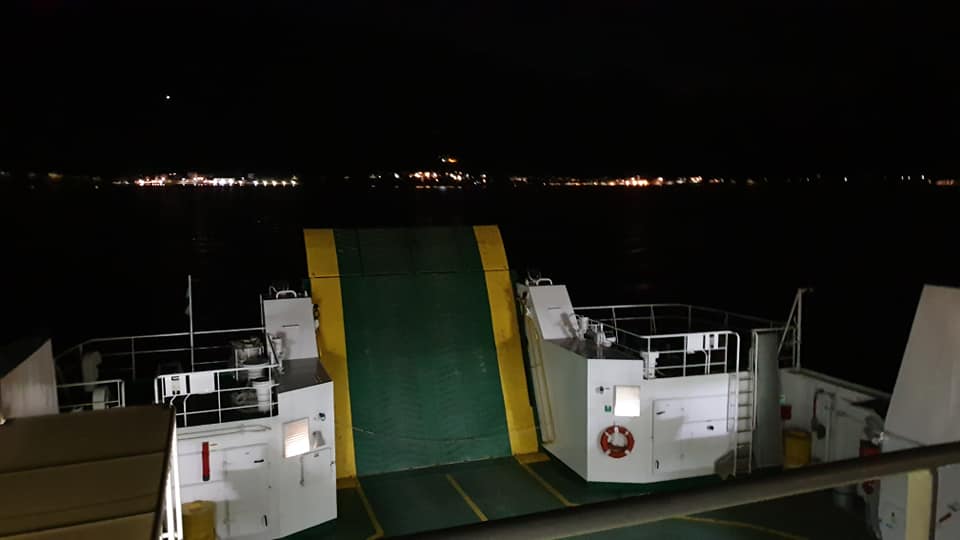
(The evening ferry to Sucuraj and last glimpse of the mainland. Who knows when we will see it next?)
And from that moment, family unity has been magnificent, and I am so proud of all three of them. Mum managed somehow to pack everything up and squeeze it into the car, not knowing how long we would be gone. We have everything we need. We drove to Drvenik to try and make the ferry to Sucuraj, and with Taliah's GPS updates, we made it with 7 minutes to spare.
And since then, I have not met anyone outside the family, chained to my laptop on the couch for 16 hours a day on average, with 30 priceless minutes by the sea to rescue my sanity.
The girls have been magnificent, and it can't be easy for them, especially now that online schooling in Croatia is the new norm - a totally new concept (and you can see their impressions of online schooling in the video interview they did, above).
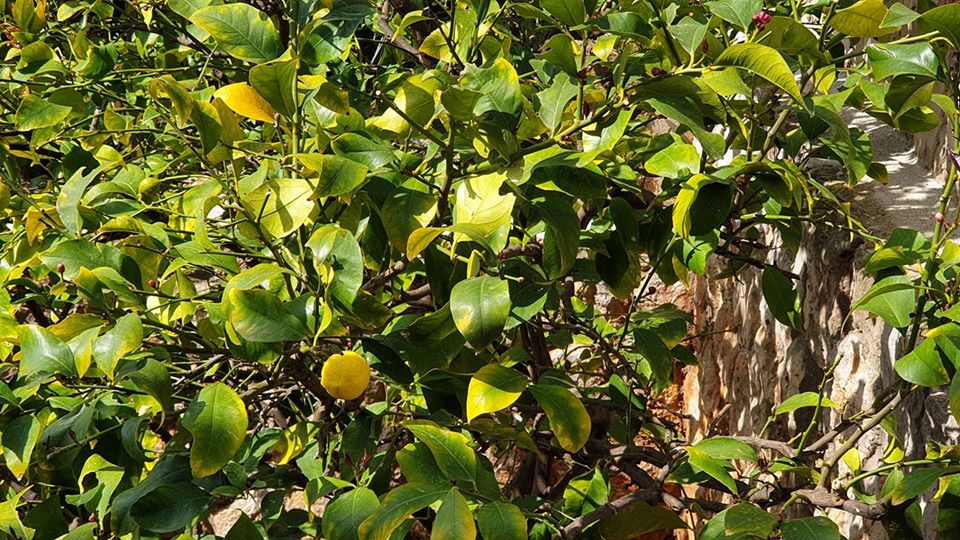
(No gin and tonic but plenty of lemons)
There are seven of us in our self-isolation unit. My wife and kids are with me in our apartment, and my sister, mother and father-in-law below. The three ladies are doing incredible things in the kitchen, and my punac is bringing amazing produce from the field where he works all day. This has brought us much closer as a family, and morale is high. No attempted murders to report - yet.
Professionally, it has been a tsunami of events, emotions and experiences (as it has been for everyone, so there is nothing exceptional about my story). I lost every cilent I had, 100% of them, in three days, and Adsense and the family field is keeping us alive at the moment. But I think that particular curve has flattened, as yesterday, we got our first new client! I lost a lot in 2008, but as I have almost nothing to lose this time, this will not affect me as much as others. And I look at other, dear friends who have worked much harder than me and built up fabulous businesses, with textbook planning and execution. But the corona effect didn't make it into the textbooks of business planning.
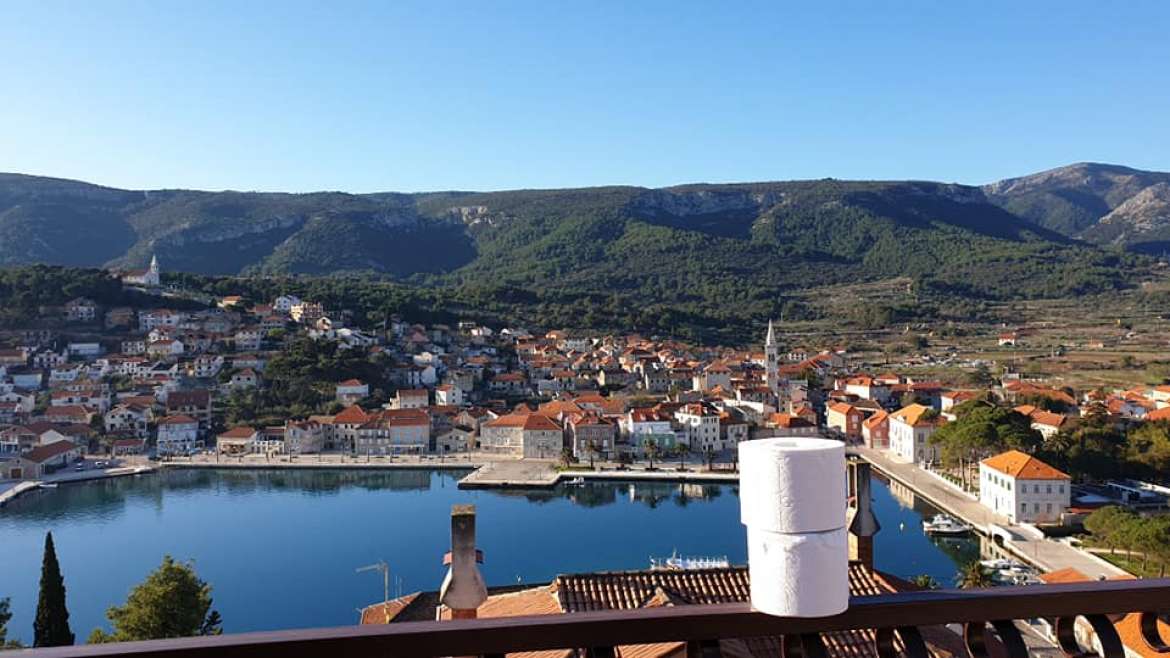
Mentally, I am very strong and focused, and I need to be. The fantastic support network of the girls, the Dalmatian sun streaming through the windows, and that precious 30 minutes by the Adriatic each evening are all essential, as are three online stress relievers. The irreverent messenger chat with my two fave TCN ladies, Dani and Lauren, is where we all let off steam, the chat between Lauren, myself and the Jurgen Klopp of science, Igor Rudan, fills me with joy and my belly with laughter. Igor truly is the funniest man I have never met.
And then there is the Facebook wall of Marko Rakar, whose combination of hilarious memes and brutal truths about what is coming make for addictive viewing, and I check in twice a day.
And I certainly need that support network to keep our three news portals together in Croatia, Montenegro and Slovenia. In addition to the crap we are all going through, I have one writer who had suspected corona and got tested (thankfully negative), another whose elderly mother has just caught it, , having to reduce staff due to no income, threats from the authorities forcing me to unpublish an article they didn't like (which subsequently appeared on other Croatian portals 2 days later - and are still live) with the promise of fines, trying to keep tabs on the mental health and stress of my writers who are being unbelievable in their dedication and application, a writer resigning a few days after the earthquake. And dealing with the abuse and inflamed emotions of our readers at a time like this, where the loose use of a word (which happens when you are chained to your laptop from 05:00 until 22:00 apart from lunch and that 30 mins by the sea) is taken as a personal attack by someone.
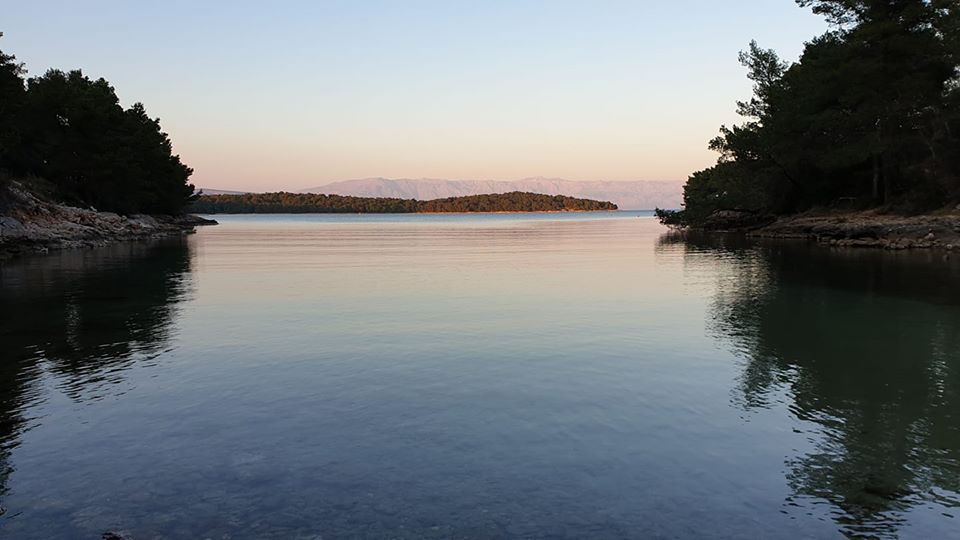
(One of the pillars which keeps me sane - 30 mins a day)
I am used to being responsible for everything in Croatia, from Bleiburg to Hajduk not winning the Champions League, but this is a VERY challenging time to be a writer, and I have to think about every word I publish (which has never been my style). Add to that the fact that corona has changed language. I posted a story about a 'super positive Moldovan wedding planner under quarantine on Murter.' The only association with the word positive these days is not a happy one, someone pointed out. You can read more in Realities of Running an English News Portal in the Corona Era.
But overall, I am doing great, and I am focused on trying to give the many, many people depending on TCN the very best and most accurate news, which is only possible due to my two amazing teams - at home and my TCN colleagues.
Oh, and I am growing a beard for the first time in 25 years.
It looks terrible.
What do you think about the economic measures the government is taking, are they helping your business?
Unlike the last question, I don't have much to say on this one, as I have not had time to look into it in detail. I will qualify for 3250 kuna a month for the next two months I understand, but my friends from Glas Poduzetnika (Voice of Entrepreneurs) made their feelings known by demanding the resignation of the Minister of Economy, as well as highlighting the fact that an alarming statistic that 93% of private businesses in their group will go bust within 3 months without significant help. And how does the Mighty State of Uhljebistan respond? The chart below is private-sector job losses since the start of the crisis (source Index.hr last Friday) on the left, public sector job losses on the right. It is why I believe that North Korea and Uhljebistan and the only true corona-proof states in the world (and yes, this is an attempt at humour to prove a point - have to be careful with my words).
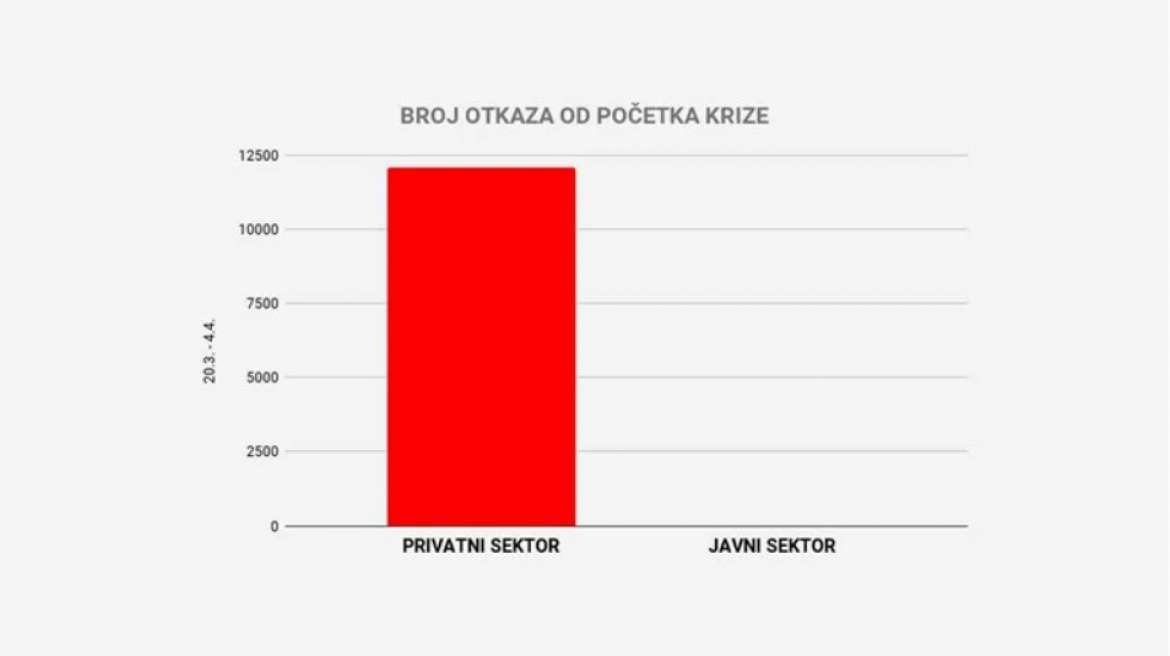
When did you realise that corona was going to be a big issue?
I started following the story in mid-January, and I asked Iva to do a piece on January 25, 2020, our first coverage, What is Croatia Doing to Prevent the Spreading of the New Coronavirus? This was three days before King Vili became Health Minister. Interesting reading, isn't it? Forrest started his excellent daily updates the next day, and we were fully informed.
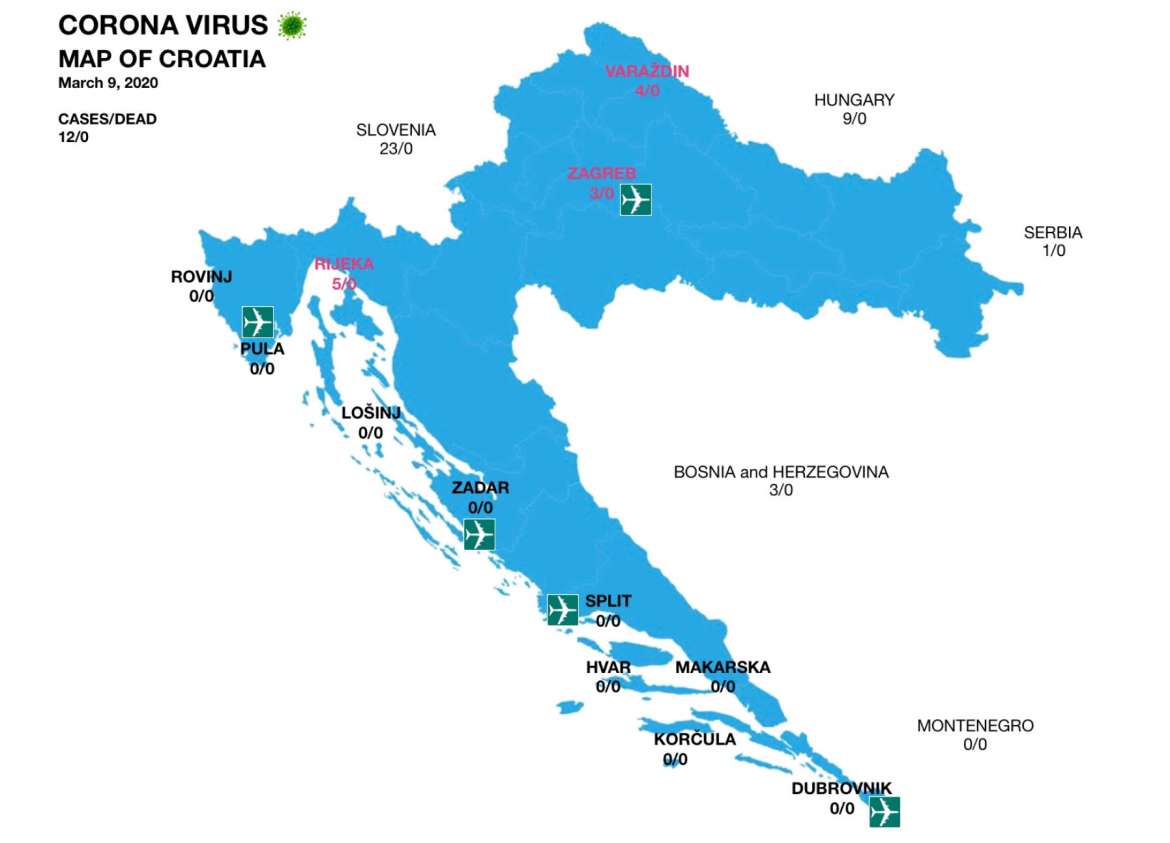
Like many, I misjudged the seriousness of corona. We came out with the first ever corona map of Croatia on March 9 (thanks to my amazing wife). Back then, there were just a few cases in Rijeka, Varazdin and Zagreb. I was aware of the panic and anxiety that was out there about flights and tourism. And so I thought it would be helpful to the tourism industry to show the situation with the airports, as well as the surrounding countries, which all had very few cases and no deaths. The readership was huge on this article, second only to the Zagreb earthquake breaking news I published 15 mins after it struck. The big discussion was whether or not to include the horror show of Italy in the map. As the aim of the map was to clarify and reassure, I decided to keep Italy off the map. In hindsight, that was probably a bad call.
On March 22, I posted this on Facebook, which explains my timeline. This is the article mentioned - From Shanghai to Seoul to Zagreb: Why I Felt Safer in China.
What is your impression of the way Croatia is dealing with the crisis? How safe do you feel?
I feel that I am in the safest place in Europe right now, in terms of the health threat (not so sure about the economic apocalypse which is coming). Who would have thought that the Croatian government could pull this off so superbly? And in our fascinating series interviewing expats from all over the world on how they are coping in Croatia (30 submissions so far), I don't think there is one who feels less safe in Croatia than they would be back home. You can see the series here.
I will be contributing to the fund to build statues of Vili and Alemka on Ban Jelacic Square when all this is over. But I also think it is important not to forget just how lucky Croatia was to have such a corrupt previous Minister of Health (let's add the word alleged here, in these sensitive times), and there should be a third statue for the investigative journalists whose stories on the erstwhile minister's property portfolio led to his replacement by King Vili. It should not be forgotten that while the former minister was holding press conferences in which he told us he was paying his lawyer 500 kuna an hour to help explain he had done nothing wrong, a bus full of Chinese tourists, including 18 from Wuhan, had arrived from Milan and was taking in the sights of Plitvice Lakes, Zadar and Dubrovnik.
Now compare that to your home country and how they are handling it. What is Croatia doing better/worse?
Yeah. Next question.
(TCN media HQ)
What about official communications from the authorities, compared to your home country?
I have been an aid worker in many hot spots in my career, including arriving 2 weeks after the 1994 genocide in Rwanda. I have never - ever - seen a crisis management and communications performance that comes close to what the National Civil Protection Headquarters is putting out. It is beyond impressive. And I would add to that the outstanding contributions from scientist Igor Rudan, whose texts are among the best on the Internet on corona. I have to pinch myself sometimes that I am in a fun chat with him and Lauren, as he is advising the Prime Minister and Health Minister on how to keep Croatia safe. And then to see that not only is Lauren now his official translator, but Igor insists the English version of his texts appear on TCN first. Thank you Sir - for everything! You can read Igor's texts here.
If the government could apply this transparency and open communication to its other ministries in the post-corona era, what a country Croatia could be.
What's the one thing you wish you had taken with you into self-isolation?
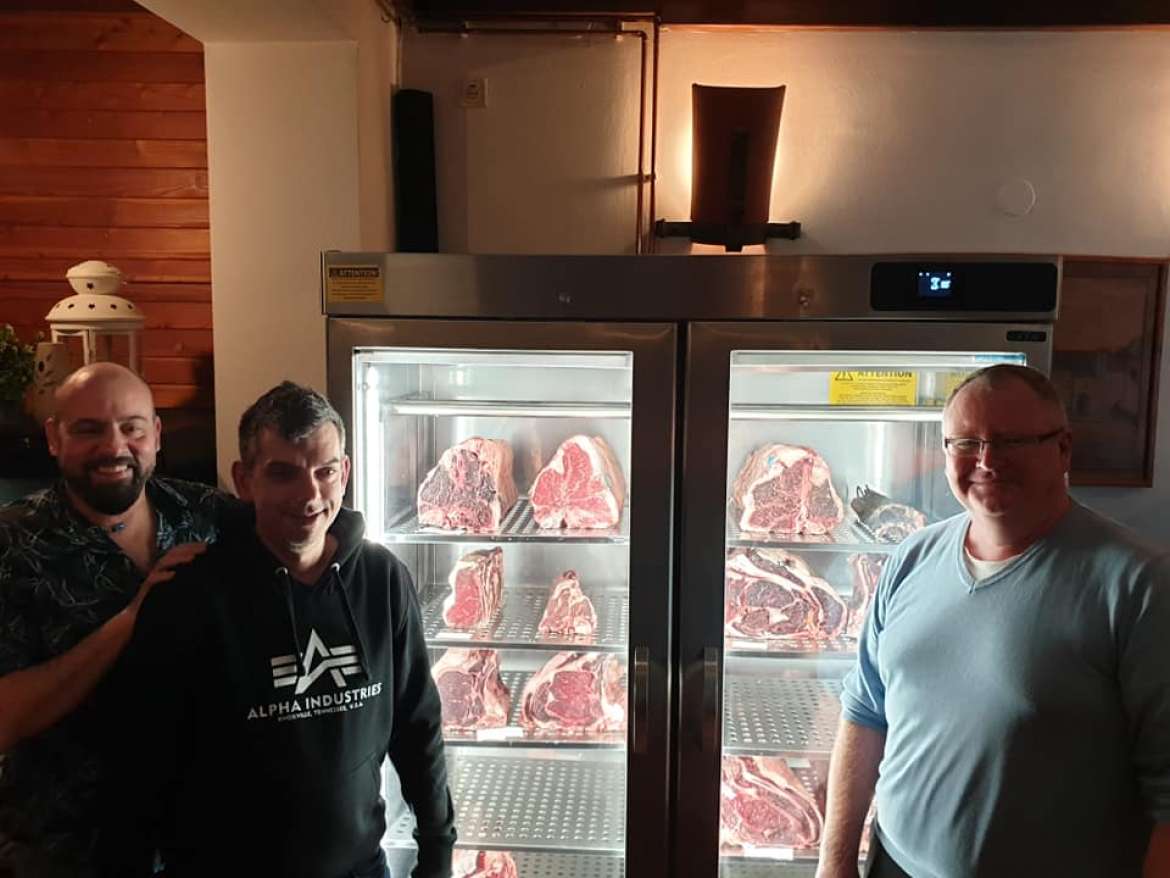
The fridge at one of my favourite restaurants in Croatia - Durina Hiza in Varazdinske Toplice. Thankfully, owner Nikola Bozic is bringing the fridge to us with this outstanding steak delivery service. He is coming to Split on April 17, so I need to figure out a way to get my order to Jelsa from there. Check out the new delivery service here - it will grow and add more quality local producers. I hope it becomes the future of how we food shop in Croatia.
I was missing my blogging bathrobe, until I mentioned that this to my wife. She then opened a drawer and produced it. Quite how she managed to put EVERYTHING we needed into the car at very short notice, I will never know. Amazing woman - thank you, wife.
One thing you have learned about yourself, and one thing you have learned about others during this crisis.
That I am not very good at growing a beard.
About others, I have learned a LOT, but perhaps best not to elaborate here. I already have a special talent for inflaming emotions. Suffice to say that I have a clear idea of who I do - and who I don't - want to hang out with on the other side. And some of the don'ts have really surprised me.
I suppose the most important thing I have learned is that when you have two foundation rocks such as my amazing family and my amazing TCN team, everything else is easy to deal with. Thank you both.
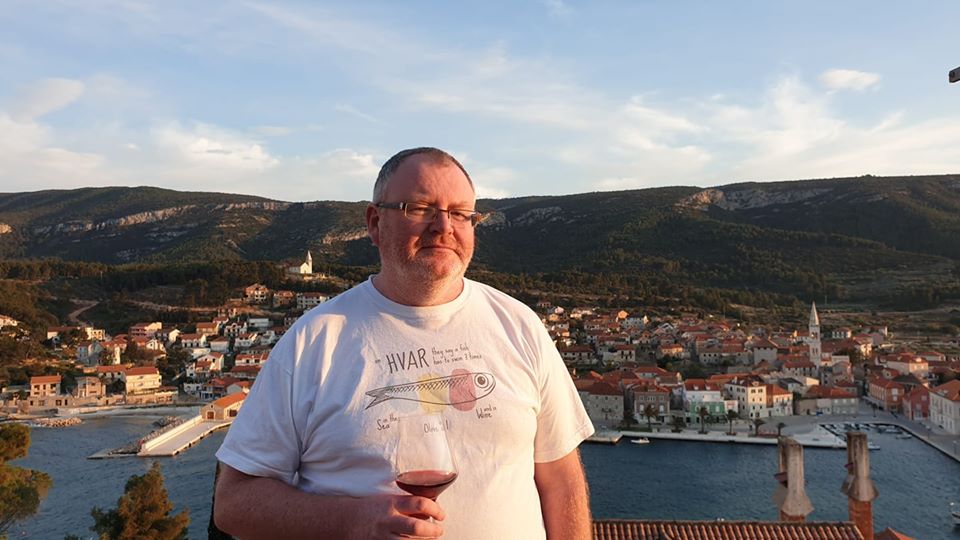
TCN is starting a new feature series on foreign experiences of sitting out COVID-19 here in Croatia compared to their home country. If you would like to contribute, the questions are below. Please also include a para about yourself and where you are from, and a link to your website if you would like. Please also send 3-4 photos minimum to This email address is being protected from spambots. You need JavaScript enabled to view it. Subject Corona Foreigner
If you would be interested to record a video version for our partners www.rplus.video please let us know in the email. Thanks and stay safe.
Foreigners Self-Isolating in Croatia: Do You Feel Safer Than in Your Home Country?
Firstly, how are you? Are you alone/with someone? Tell us a little about your situation and sanity levels.
What do you think about the economic measures the government is taking, are they helping your business? (PLEASE IGNORE IF THIS DOES NOT AFFECT YOU)
When did you realise that corona was going to be a big issue?
What is your impression of the way Croatia is dealing with the crisis? How safe do you feel?
Now compare that to your home country and how they are handling it. What is Croatia doing better/worse?
What about official communications from the authorities, compared to your home country?
What's the one thing you wish you had taken with you into self-isolation.
One thing you have learned about yourself, and one thing you have learned about others during this crisis.
TCN has recently become a partner in Robert Tomic Zuber's new R+ video channel, initially telling stories about corona experiences. You can see the first TCN contribution from this morning, my video from Jelsa talking about the realities of running a news portal in the corona era below. If you would like to also submit a video interview, please find Robert's guidelines below
VIDEO RECORDING GUIDE
The video footage should be recorded so that the cell phone is turned horizontally (landscape mode).
There are several rules for television and video news:- length is not a virtue- a picture speaks more than a thousand words
In short, this would mean that your story should not last more than 90 seconds and that everything you say in the report should be shown by video (for example, if you talk about empty streets, we should see those empty streets, etc.).
How to do it with your cell phone? First, use a selfie camera to record yourself telling your story for about a minute and a half. Ideally, it would be taken in the exterior, except in situations where you are reporting on things in the interior (quarantine, hospital, self-isolation, etc.). Also, when shooting, move freely, make sure everything is not static.
After you have recorded your report, you should capture footage that will tell your story with a picture, such as an earlier example with empty streets.
One of the basic rules of TV journalism is that the story is told in the same way as a journalist with his text. Therefore, we ask you for additional effort. Because we work in a very specific situation, sometimes you may not be able to capture footage for each sentence of the report. In this case, record the details on the streets: people walking, the main features of the city where you live, inscriptions on the windows related to the virus, etc.
The same rules apply if you are shooting a story from your apartment, self-isolation, quarantine. We also need you to capture footage that describes your story.
When shooting frames to cover your reports, it is important that you change the angle of the shot (in other words, shoot that empty street from several angles). Also, when shooting a detail, count at least five seconds before removing the camera to another detail.
The material should be about 5 minutes long (90 seconds of your report + frames to cover your story).
After recording everything, send us to Zagreb, preferably via WeTransfer to This email address is being protected from spambots. You need JavaScript enabled to view it.
Coronavirus: Half a Million People Await Government-Paid Salaries
The coronavirus pandemic is continuing to wreak havoc with the global economy, and the Croatian economy is no exception despite the excellent results the country is having in fighting the virus.
As Poslovni Dnevnik writes on the 7th of April, 2020, as many as a third of persons who are residents of Croatia and who pay pension insurance, will get a part of their salary, and in some cases the entire monthly amount from the state budget this month.
As of the 5th of April at noon, 86,746 Croatian employers had requested job preservation support for about 506,000 of their workers, according to a report from Novi list. If workers who are seeking government-paid salaries both the state or local budgets, as well as those working for public or communal companies are separated from the total, it seems that private sector employers have sought support for almost half of their workers. It will be 3,250 kuna for March, 4,000 kuna net for April, with the state paying 1,460 kuna in contributions.
This means that for more than half of the amount of the average salary in Croatia in April, which amounts to about six and a half thousand kuna and which previously cost employers more than ten thousand kuna, will be covered by the state.
Considering that the payment of taxes and contributions has been delayed, and the fact that such fees will be written off entirely for some employers, this means that employers currently have to allocate just over 2,500 kuna to pay the average wage to their workers. The state will give a total of around 600 million kuna to Croatian employers. In addition, the Ministry of Finance had received 77 thousand requests for the deferral of contributions and income tax as of the 5th of April, 2020.
These measures have apparently, at least for the time being, prevented the massive layoff of workers due to the ongoing coronavirus crisis. As of the 5th of April, according to the Croatian Employment Service (CES), there were 147,980 unemployed people, which is 10,003 more than there were back at the end of February.
The number of unemployed persons increased by 7.2 percent in just over a month, while in the past few years, the number of unemployed would traditionally start to decline due to employment in the pre-season, in preparation for summer. However, if the state had not passed the measures it has, given the freezing of economic activity, that figure would probably be in the hundreds of thousands. The real situation with people who lost their jobs due to the coronavirus epidemic will be better seen in June if the government decides against extending the duration of the aforementioned economic measures.
Make sure to follow our dedicated section for all you need to know about coronavirus in Croatia.
Heineken Donates 37000 Kuna to Karlovac General Hospital
Many Croatian companies are stepping up and doing their bit in the fight against the ongoing coronavirus pandemic, with numerous generous donations going to hospitals up and down the country from big names determined to secure medical facilities equipment they need. Karlovac General Hospital is yet another hospital to receive very welcome extra funds.
As Poslovni Dnevnik writes on the 7th of April, 2020, Heineken Hrvatska (Croatia), the second largest brewer and one of the leaders in corporate social responsibility in the Republic of Croatia, announced today that it will donate a massive 370,000 kuna to Karlovac General Hospital.
Thanks to this donation, the largest and most important medical institution in Karlovac County will acquire the additional equipment needed in the current fight against the rapidly expanding coronavirus. More specifically, a new respirator, monitor and video bronchoscope will be purchased to enhance Karlovac General Hospital's existing facilities, especially its intensive care unit. The remaining funds will then be used to buy personal protective equipment, such as face masks and gloves, which are currently in demand.
''I want to thank our excellent neighbour, Heineken Croatia, for joining us in the fight against the COVID-19 pandemic. The donated equipment will not only help all of our existing patients who have respiratory problems, but will certainly serve the hospital for many more years,'' said doc. Prim. dr. sc. Ervin Jancic, the director of Karlovac General Hospital.
Heineken Croatia is otherwise a leader in promoting health and safety and is constantly finding ways to improve the quality of life in the local community in which it operates.
''Heineken Croatia is a partner of our Karlovac and Karlovac counties, as well as a friend to our employees, their friends and their families. That's why we strongly empathise with the community in which we operate. We're aware that health and safety should be a top priority for everyone, and we've decided to make an additional contribution to ensuring that. These are difficult times, but we'll overcome this crisis together. When the current battle with the pandemic is over, we'll be even more connected and closer than we were before,'' said Odin Goedhart, CEO of the company.
The Karlovac brewery has also taken an additional step in supporting and solidifying those most involved in the fight against coronavirus. Therefore, both the state and local civil protection staff received a donation of nearly 600 litres of premium Heineken 0.0 non-alcoholic beer, which will help their members stay hydrated even in this challenging situation.
Make sure to follow our dedicated section for more on coronavirus in Croatia.
Coronavirus: HZZO Introduces Temporary Information Telephone
Isn't it funny how all of a sudden, owing to the ongoing coronavirus crisis, everything can can be done over the phone or digitally in Croatia? It's ironic that now we can't take entire days off work to stand around taking numbers and lining up with hands full of (usually pointless) documents, the internet and a few new phone lines are here to save us.
The dream of a Digital Croatia appears to have been somewhat sped up by the appearance of coronavirus, and even the Croatian Health Insurance Fund (HZZO) has set up an information phone line for insured people to contact should they need to.
As Poslovni Dnevnik writes on the 7th of April, 2020, residents with health insurance provided by HZZO can call this new temporary number every working day from 08:00 to 16:00 and ask questions regarding their entitlement to compulsory or supplementary health insurance, and the right to maternity and parental benefits.
Amid the coronavirus pandemic, HZZO has introduced a temporary information telephone to enable its policyholders to be provided with prompt, simple and high-quality information in these exceptional circumstances. Which does beg the question of why it wasn't just done before, given the fact that we are in the 21st century.
Cricitism aside, the temporary telephone line is: 033 62 88 88 and costs the normal price of a local call, HZZO claims.
In addition to the various e-mail addresses that can be found on HZZO's official website, this number is now available to residents so that they can get information as soon as possible without having to go to HZZO's offices in person, as was otherwise the norm.
In this way, HZZO is properly adhering to the guidelines and is protecting both its employees and users from the possibility of contracting coronavirus.
Follow our dedicated section for all you need to know about coronavirus in Croatia.
Travel in the Post-Corona Era: Health and Safety
April 7, 2020 - Continuing his stimulating series look at travel in the post-corona era, Zoran Pejovic of Paradox Hospitality turns his attention to the subjects of health and safety.
The world is slowly waking up to the fact that things are not going back to pre-corona times. As days and weeks go by, I keep getting fewer funny memes in my inbox and WhatsApp messages, and more serious articles pointing to the downfall of the travel industry and the difficulties it will face once it all resumes. The question I get asked more and more is how travel will look like after this is over? I have already given some predictions about the post corona travel. This article will dig a bit deeper into the emotional aspects that go into travel decision-making, and how those will evolve in the post-corona travel era.
What can we learn, for example, from the toilet paper craze that dominated the early days of the coronavirus pandemic? We can learn that there is such a thing called zero-risk bias. Zero-risk bias is an interesting defence mechanism that evolution has gifted us, and it really means sorting out some small, tangential, less important problems rather than those large, often unsolvable problems on the individual level, so that we regain some sense of control. Zero-risk bias comes fully into the play when we are faced with the larger questions on health and safety. Hence buying toilet paper in the wake of the Coronavirus pandemics. Why is this important?
When it comes to travel decision making, we are motivated by, broadly speaking, two sets of emotions, promotion emotions and prevention emotions. Promotion emotions of self-elation, recognition, excitement, delight and satisfaction, especially satisfaction derived through the acquisition of new knowledge and new experiences, have dominated the travel world over the past decade or so. This especially applies to the “upper middle” and “entry luxury” segments of the market. The idea of personal betterment through travel, especially via experiential travel and the rise of the affluent traveller in contrast to the mass tourist has been studied, discussed and fully acknowledged, even hyped as health beneficial. Recent psychological research conducted by prestigious Cornell University has shown that such behaviour, the one hallmarked by experiential rather than material purchases, does indeed make one a better person. Better is here meant in terms of sense of gratitude and generosity which in turns propels one’s social behaviour, which ultimately leads to better general health.
In this time of rapidly evolving contexts, we need to examine some of the trends that made sense then and ask if they will still make sense afterwards. The longer this crisis takes, the more likely it is that prevention emotions will take over as the driving factors in the travel decision making. Prevention measures that deal with risk reductions, absence of problems and absence of discomfort, can in turn again lead to satisfaction, confidence and a sense of security.
I will look a bit more here into the segment of health and safety, on a more practical and applicable level. When we extrapolate from the current situation and apply it to the hotel industry, we can safely assume that hand sanitizers for example will become more permanently placed in all hotel public areas, entrance to the hotels, to the bars and restaurants and next to the elevators. Also, we will probably see alcohol-based hand sanitizers as part of the standard set-up in public restrooms, next to the soap dispensers, and the restrooms will have to be equipped with no-touch garbage containers as well. Also, the regulation of fresh air share in the hotel public areas will need to be controlled more rigorously by air quality sensors. It might become a standard that hotels need to be able to provide 100% fresh air supply every hour or so in the public areas, especially conference halls and meeting rooms. In terms of operations, all staff will have to complete additional hygiene training courses, and housekeeping will have a special schedule for cleaning high-frequency areas such as elevator buttons, door handles and restrooms. All of these activities might lead to a heightened sense of safety that post-corona era travellers might look for.
What does the toilet paper craze have to do with this? Well, extrapolating from the current situation is fine and will probably lead to some good decision-making on behalf of the hotel operators, but I expect the real changes to come from somewhere else. So, for example, those with a desire to travel, being unable to prevent all the challenges regarding the anxiety of the post-corona travel might subconsciously use the zero-risk bias and eliminate some other risk, way smaller and unrelated. One of those might be handling of cash, for example. Cash can be a transmitter of the virus. However, more importantly, cash often presents a risk for those who are carrying it with them. Cash is easier to lose, there are issues with currency exchange and overall people feel more comfortable, in this day and age, handling payments via credit cards and more so mobile payment options. So, cash, which was already dying out, might be given a final blow by the coronavirus pandemic. In this case, eliminating cash as one of the small, unrelated risks might play the role of the stockpiling of the toilet paper.
Other measures that will play a role in travel decision making motivated by prevention emotions concern ease of access, ease of use and privacy, but I am more interested in finding another “toilet paper” risk elimination.
You can read more on this subject of post-coronavirus travel from Zoran here:
Travel Industry: Keep Communicating and Visibility
Build Scenarios! Be Present! Take Time to Think!
Post-Coronavirus Travel and Tourism: Some Predictions
Croatian Tourism 2020 and Coronavirus: Let’s Postpone the Season
Post-Corona Tourism Planning: Hope is Not a Good Business Strategy
You can connect with Zoran Pejovic via LinkedIn.
Corona Voices in the Croatian Diaspora: Alida from Hvar in Florida
April 7, 2020 - With as many Croatians living abroad as in the Homeland, what are the diaspora experiences of self-isolation? In the fifth of a new series, Corona Voices in the Croatian Diaspora, here is Alida Paljevic in Florida and originally from Jelsa on Hvar.
Last week TCN started a feature series called Foreigner Self-Isolation In Croatia: Do You Feel Safer? I can honestly say we have never had such a response or so many incredible contributions. The countries of origin of these expats in Croatia literally from all over the world. So far we have had submissions from expats from Romania, USA, Ireland, UK, Mexico, Argentina, Spain, Singapore, Holland, Canada, India, Hong Kong, Venezuela, Latvia, China, Honduras, Hungary, Moldova, New Zealand, Japan and Germany. You can see all their stories here.
Given the success of the series (still going strong) and large interest, it made sense to expand it to look at this from another angle - how Croatians abroad are coping where they are. If you would like to contribute your story to Corona Voices in the Croatian Diaspora, please find the submission guidelines below. And now, the view from Florida through the eyes of Alida Paljevic, who went to school with my wife in Jelsa all those years ago.
My name is Alida Paljevic, and my family of 3 lives in Florida, in a town called Dania Beach right between Miami and Fort Lauderdale.
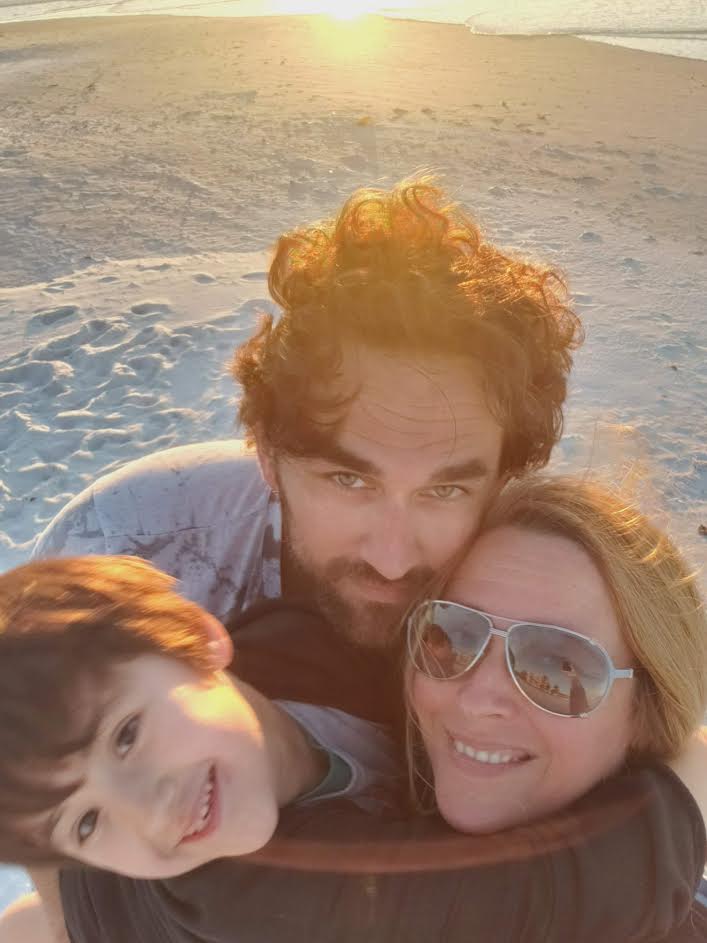
Originally, I am from the most beautiful island in Europe, the island of Hvar, but for 20 years I lived in Zagreb, before moving to the US 4 years ago for an amazing job offer.
I work in the travel industry that has been hit very hard by this Coronavirus crisis, it was the first to take the hit and it will be the last to recover. But it will recover! And Americans will travel to Croatia and Europe again.
If we put aside the current situation, my career in the travel industry was really fulfilling and exciting. I truly love what I do and I can’t wait for this all to pass so that I can continue to send travelers from North America to Croatia and Europe.
Firstly, how are you? Are you alone/with someone? Tell us a little about your situation and sanity levels.
We are OK, we are a bit bored to be at home all the time, and we have been at home for the past 4 weeks with the exception of a few trips to the store for food. Lately, we stopped even going out for food and we are using grocery delivery services instead. I work from home, my son is going to school online and doing some work through 2 school apps, one for math and one for English. It is stressful a bit… My husband works as a private fitness trainer and of course his gym is closed too now. Luckily, we live in a townhouse that has a bit of a backyard with a nice view and access to a pond, so the scenery is nice, and we have the opportunity to spend time outside. We also go for walks around the neighborhood sometimes. I must say it’s not that bad for us.
When did you realise that corona was going to be a big issue?
I was hoping for the best, and honestly didn’t see it coming, at least not escalating this much worldwide… But Florida is a very desirable tourist destination that attracts tourists from all over the world, and also home to many retirees, so it has a large number of elderly people, so at a certain point, I started to expect that it could get serious… Also, Fort Lauderdale is a major cruise point and besides that many New Yorkers have their holiday houses and condos here, and many of them came down when things started to get serious in New York. (not blaming them though! I would do the same).
When did you realise that corona was going to be a big issue in Florida in particular?
When the numbers started to go up fast, multiplying on a daily basis, I would say about a month ago, somewhere in the first week of March we started to hunker down, get more groceries at once, and schools closed on March 15th.
Give us a timeline on when and how life changed.
The first days of February I was in Zagreb, for business. At that time the virus was still mainly in China, there were a couple of cases in Germany and Italy if I recall correctly. Croatia was still Corona-free, and so was Florida. I came back and a few weeks after everything started to escalate first in Europe, and while Croatia already had a couple of reported cases, Florida was still with not a single reported case. But when it started, the numbers went up really fast, and in the past 3 weeks, Since March 16, there are almost 13000 confirmed cases in Florida.
Tell us about your day. Do you/can you leave your apartment?
We are on a ‘mandatory stay at home’ in the whole state of Florida. But we are allowed to go out for essential needs. We are allowed to go for walks, just us as a family.
The days actually go by pretty quickly, I work, my son does his school classes, we cook lunch, cook dinner, take a walk, play games, watch tv… And, of course, we spend time talking on the phone to our family in Croatia and our friends both here and Croatia.
How are the authorities doing at handling the situation?
I thought they waited too long to close everything… Spring break was happening, with all the students on the beaches… I must say I would personally prefer it if their reaction was a bit more aggressive in the beginning.
You obviously keep an eye on your homeland. What is your impression of the way Croatia is dealing with the crisis?
Reading various articles almost every day, and talking to folks in Croatia, I would say they did a pretty good job.
Compare and contrast the responses of Croatia and USA. Who is doing what better?
It is really hard to compare, I think, the US is a much larger country and I think it would be probably impossible for all the States in the US to be unified in a way a small country like Croatia can… I think in terms of possibilities, both countries are trying to do the best they can.
What about official communications from the authorities, compared to your home country?
Honestly, I don’t watch the news much… I get affected by it in a bad way, so no, no news for me! I read about the situation in both countries and also globally, but I try to keep myself informed, let’s say just enough. I follow “the numbers”, and of course read the guidelines that affect us here in Florida through a few websites, and that’s about it. I find the info I need online, but skip the news on TV.
What's the one thing you wish you had taken with you into self-isolation?
I would say we have everything we need, if I could make something appear in our house, it would be some of our family members and some friends, so that we could hang out and spend time together during this self-isolating times… That is what we miss! We have some Croatian families that live close to us and became our friends. Before this whole crisis, we would get together on the weekends, to have barbeques, and we talk, laugh, sing, dance, we have a lot of fun together and relax. I think this is a sort of ‘therapy’ for us Croatians living abroad. We are very social and like to hand out with our friends, so I am pretty sure we’ll have a barbeque the day after this whole thing is over!
One thing you have learned about yourself, and one thing you have learned about others during this crisis.
I have been working from home for the past year and a half, so I would say the change is not huge for me personally. But the challenge of working from home is real, to be able to put boundaries in place, between your personal and work life, to me that one is tough… I tend to prefer my laptop over laundry and dishes (LOL)
What I learned about myself in this crisis is that I have the ability and freedom to decide if I am focusing on the bad stuff or on the good stuff. I choose to focus on the good stuff. All my family members and friends are thankfully safe and healthy. And regarding my job, just focusing on the “day after”, preparing programs and itineraries for 2021. My work keeps me sane. It gives me hope that everything will go back to normal, and the strength to stay positive and think positive through these tough times!
About others, well, I knew this from before, but everyone has their own “coping system” and we should all respect each other. I always try to spread good vibes, but I learned not everyone wants to hear them! Even though I feel the majority of people I contact with, and besides Croatia, I have friends in Italy and Spain, as well as some associates in New York, all facing really hard times. All of them are hopeful and positive. Also, I have a group on Facebook that gathers around 700 Croatian women that live abroad, the group is called “Hrvatice u Inozemstvu”. There I talk to Croatian women really all over the world, we have members in Turkey, Island, Panama, Australia, Spain, Italy, the US, Canada… I can’t even remember all the countries are represented in this group, and more or less all countries are going through similar things. We support each other, share some important info, positive thoughts and inspiration. I feel my fellow Croatians abroad are staying at home, staying safe and most importantly, staying positive.
If you could be self-isolating in Croatia, where would it be, and why?
Definitely Hvar! My parents are there, we have a big house in Vrbanj, my dad has a boat, we have vineyards… It is Sparoge (wild asparagus) season… What an idyllic way to self-isolate!
Thanks, Alida. Stay safe and see you on the other side. You can see all the stories in both this diaspora series, and the one on expats in Croatia on this link.
TCN is starting a new feature series on Croatian diaspora experiences of sitting out COVID-19 abroad and comparing your experiences to the situation in Croatia. If you would like to contribute, the questions are below. Please also include a para about yourself and where you are from, and a link to your website if you would like. Please also send 3-4 photos minimum to This email address is being protected from spambots. You need JavaScript enabled to view it. Subject Corona Diaspora
If you would be interested to record a video version for our partners www.rplus.video please let us know in the email. Thanks and stay safe.
Self-Isolation Voices from the Diaspora
Firstly, how are you? Are you alone/with someone? Tell us a little about your situation and sanity levels.
When did you realise that corona was going to be a big issue?
When did you realise that corona was going to be a big issue in New York in particular?
Give us a timeline on when and how life changed.
Tell us about your day. Do you/can you leave your apartment?
How are the authorities doing at handling the situation?
You obviously keep an eye on your homeland. What is your impression of the way Croatia is dealing with the crisis?
Compare and contrast the responses of Croatia and USA. Who is doing what better?
What about official communications from the authorities, compared to your home country?
What's the one thing you wish you had taken with you into self-isolation?
One thing you have learned about yourself, and one thing you have learned about others during this crisis.
If you could be self-isolating in Croatia, where would it be, and why?
TCN has recently become a partner in Robert Tomic Zuber's new R+ video channel, initially telling stories about corona experiences. You can see the first TCN contribution from this morning, my video from Jelsa talking about the realities of running a news portal in the corona era below. If you would like to also submit a video interview, please find Robert's guidelines below
VIDEO RECORDING GUIDE
The video footage should be recorded so that the cell phone is turned horizontally (landscape mode).
There are several rules for television and video news:- length is not a virtue- a picture speaks more than a thousand words
In short, this would mean that your story should not last more than 90 seconds and that everything you say in the report should be shown by video (for example, if you talk about empty streets, we should see those empty streets, etc.).
How to do it with your cell phone? First, use a selfie camera to record yourself telling your story for about a minute and a half. Ideally, it would be taken in the exterior, except in situations where you are reporting on things in the interior (quarantine, hospital, self-isolation, etc.). Also, when shooting, move freely, make sure everything is not static.
After you have recorded your report, you should capture footage that will tell your story with a picture, such as an earlier example with empty streets.
One of the basic rules of TV journalism is that the story is told in the same way as a journalist with his text. Therefore, we ask you for additional effort. Because we work in a very specific situation, sometimes you may not be able to capture footage for each sentence of the report. In this case, record the details on the streets: people walking, the main features of the city where you live, inscriptions on the windows related to the virus, etc.
The same rules apply if you are shooting a story from your apartment, self-isolation, quarantine. We also need you to capture footage that describes your story.
When shooting frames to cover your reports, it is important that you change the angle of the shot (in other words, shoot that empty street from several angles). Also, when shooting a detail, count at least five seconds before removing the camera to another detail.
The material should be about 5 minutes long (90 seconds of your report + frames to cover your story).
After recording everything, send us to Zagreb, preferably via WeTransfer to This email address is being protected from spambots. You need JavaScript enabled to view it.

